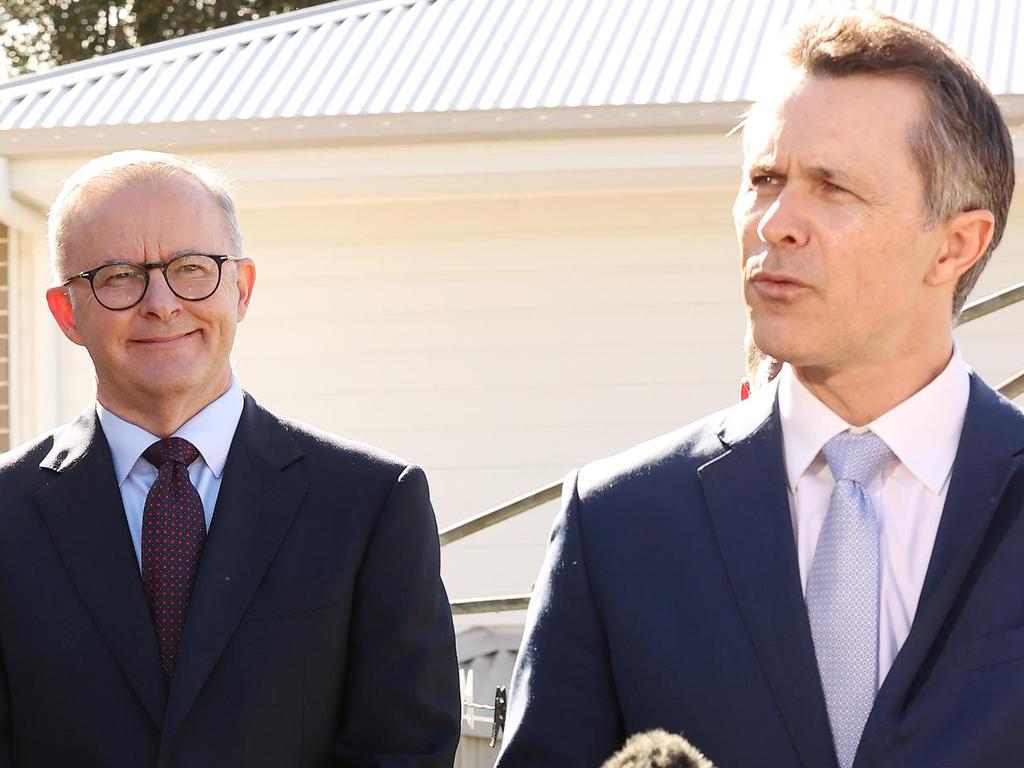
Now they are rising again, with the Reserve Bank lifting the key official rate from 0.1 per cent to 0.35 per cent. The change works out at $68 a month on a $500,000 mortgage and $136 a month on $1m.
It might not sound like a lot per month, but it’s a lot if you were working on the basis that rates never change, or you have stretched to the limit to buy a house that may well be dropping in value this year.
To put it another way, even the $68 extra a month on a mortgage of half a million dollars becomes an additional $24,450 in interest charges over the life of a standard 30-year principal and interest loan.
Moreover, with the RBA now signalling that we could see official rates near 2.5 per cent towards the end of next year, that indicates mortgage rates could be significantly higher in late 2023. Working out mortgage payments under that scenario produces a rise in monthly payments of $575 and adds around $200,000 in extra interest charges on a standard $500,000 mortgage.
More than one million mortgage holders across Australia have never had a note from the bank telling them their variable mortgage rate has increased.
Now mortgage holders better get used to rates moving higher as our central bank joins a global fight against inflation: Australian inflation is now running at an annualised rate of more than 5 per cent.
Economists expect that official rates could be 2 per cent or higher next year, which would translate to mortgage rates getting nearer to 6 per cent.
Steve Mickenbecker of Canstar Research suggests: “The banks will increase variable rates within days. They will pass on the Reserve Bank cash rate increase to existing borrowers, who have been immune to the rapid rise of fixed interest rates of recent months.
“Only those who still have time left on their fixed rate loan term will be spared.”
The decision by the Reserve Bank to move this month is all the more dramatic because it arrives smack in the middle of a federal election – the last time the RBA did that was in 2007 (lifting rates to 6.75 per cent!) just weeks before the Howard government lost office.
Roughly one-third of recent home loans have been “fixed” – though that portion has dropped from a peak of 46 per cent in July 2021: Fixed rates allows borrowers to sign up for a mortgage rate that will not change for a set period such as three years.
Even with the recent consumer swing away from fixed mortgages, the volume of fixed-rate loans is much higher than in the past. It means the latest RBA move may not be as effective compared to previous rounds of rate hikes.
It also means a large group of mortgage holders will be cushioned from rate increases this year but then may face sharply higher costs when their “fixed term” ends in the months ahead.
In the short term the most exposed mortgage holders will be those who have bought homes in the past six months at what now looks like a peak of the local residential property cycle – especially any borrowers on interest-only loans. As Tim Lawless of research group CoreLogic suggests: “Higher interest rates are set to add to the downward pressure on housing growth rates, which were already losing steam.”
On the flip side, any lift in cash rates will be welcomed by investors who may depend on cash deposits for income. Cash deposits have been at rock bottom levels in recent years – a one-year term deposit rate from Commonwealth Bank before the RBA move was set at just 0.3 per cent.
The banks will be expected to lift both mortgage rates and cash rates to reflect the new realities in the market.
However, the banks have plenty of discretion over how much they will change rates and how long they take to do so.
Many retirees – especially self-funded – rely heavily on bank deposit returns because they are easily accessible and the security of the government’s bank deposit guarantee which works out at $250,000 per bank per individual.
Bank shareholders should also see some benefit from the rate hike as broking analysts estimate that bank profits will lift by 3 per cent for every 0.25 per cent increase put through in rates by the RBA.
The rate rise comes as the major political parties have been rolling out a range of policies to try to improve home affordability.
The Coalition has made its biggest move by expanding the capacity of the existing home loan guarantee scheme – this is where the government guarantees a portion of a first-home buyer loan, allowing the borrower to buy with a smaller deposit and to avoid mortgage insurance costs.
The ALP has announced a shared equity scheme where the homebuyer shares ownership of the property with the government – the scheme allows a commonwealth equity contribution of up to 40 per cent of new homes and 30 per cent of existing homes.








Where were you in November 2010? That’s the last time interest rates rose.